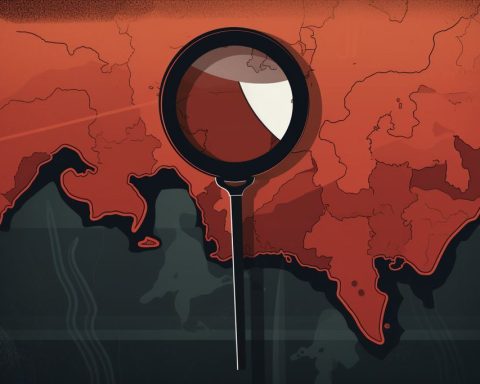As the demand for housing opportunities increases, it is important for residents to remain vigilant and aware of potential housing scams. The City of Cape Town has issued a warning to residents, urging them to report any suspicious or illegal activities related to housing to the South African Police Service (SAPS) and not to pay for housing opportunities.
Red Flags for Housing Scams
One recent case involved an email sent to an applicant claiming that a title deed for a house in Watergate, Mitchells Plain, would be provided upon payment of a certain amount of money. The City warns that paying for registering on the Housing Needs Register, for a government housing Breaking New Ground (BNG) opportunity, or a plot of City-owned land is a scam. If the opportunity is advertised as an ‘RDP house’ or the correspondence lacks a City letterhead, these are red flags indicating a potential scam. Such cases often target the most vulnerable residents who are in dire need of housing.
The Importance of Reporting Scams
Acting Mayoral Committee Member for Human Settlements, Alderman James Vos, stresses the importance of being aware of scams and reporting any incidents to the SAPS. The Housing Needs Register is a crucial tool to prevent queue-jumping and ensure a fair, orderly allocation of housing opportunities in the metro. The City has been made aware of numerous cases in recent weeks and months, urging residents and beneficiaries to contact the City if they suspect any fraudulent activity.
Registering for Housing Opportunities
Residents are reminded that they do not need to pay to register on the Housing Needs Register or to receive a subsidy housing opportunity. To update their details on the register, they may visit the following link: https://web1.capetown.gov.za/web1/HWL2012Online/.
Reporting Suspicious Activities
To further protect its projects and operations, the City encourages residents to report any suspicious activities via anonymous tip-offs by calling: 0800 1100 77.
It is essential for residents to be cautious and well-informed about potential housing scams. By staying alert and reporting any fraudulent schemes, the community can work together with the City to ensure a fair and just housing allocation process. Education and awareness about housing scams not only protect the individual residents but also help maintain the integrity of the housing system as a whole. The City’s warning serves as an important reminder for residents to be vigilant and not fall victim to fraudulent schemes.












